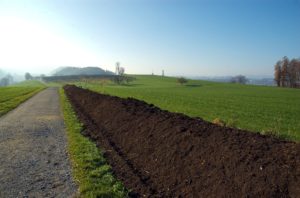There was a child went forth every day.
And the first object he looks upon, that object he became.
–Walt Whitman
The late poet Stanley Kunitz believed that writers often have a “key image” that keeps working them over and over again in their writing. In fact, writers may spend an entire lifetime working one key image, an image rich enough to hold the deep mystery of the creative unknown. One of the examples he provides is of E.B. White, who as a child was fascinated by the intricate patterns of spider webs. E.B. White went on to author the best-selling children’s book, Charlotte’s Web. In his book Beauty, John O’Donohue says something similar: “In the end every artist is haunted by a few central themes. Again and again, they return to the threshold of that disturbance and endeavour to excavate something new.”
From my work with people, it’s clear to me that key images are not limited to writers and artists, it’s just that artists and writers have more clear ways to “work” these images. We all have powerful images from childhood, rich in metaphorical significance, that stay with us through our lifetimes. After all, childhood is that time of silence when the deepest impressions are imprinted. We don’t yet have language mastered, our minds are not yet filled with words, concepts, and ideas. A friend of mine, who grew up near the ocean in England, has spent the last twenty years studying human consciousness as “wave” patterns. The ocean is her key image and in her view, everything in the universe is ocean-like, pulsing as cosmic waves.
 My heart’s image, on the other hand, is the earth–farming, planting, and soil (Do you think this is because I’m the daughter of an Iowa farmer?) Compost is probably the most powerful image for me. I LOVE compost, which is all about deep, rich, dark, mysterious transformation.
My heart’s image, on the other hand, is the earth–farming, planting, and soil (Do you think this is because I’m the daughter of an Iowa farmer?) Compost is probably the most powerful image for me. I LOVE compost, which is all about deep, rich, dark, mysterious transformation.
Most of my poetry involves soil and compost as central themes, and even though teaching is the topic of my book, Getting Messy, the underlying metaphor views life-enhancing teaching as akin to farming. The central metaphor of planting, farming, and working with rich soil weaves throughout the entire book.
Whatever the key image that moves your soul, the truth is–it’s bigger than you. It does not belong to you. You belong to it.
If you want to learn more about your own key images, I’d suggest taking my class “Creative Space and Metaphor” that will be offered at Book Passage on Saturday, December 13th. It’s already looking like it’s going to fill up, so if you’re interested, call today!